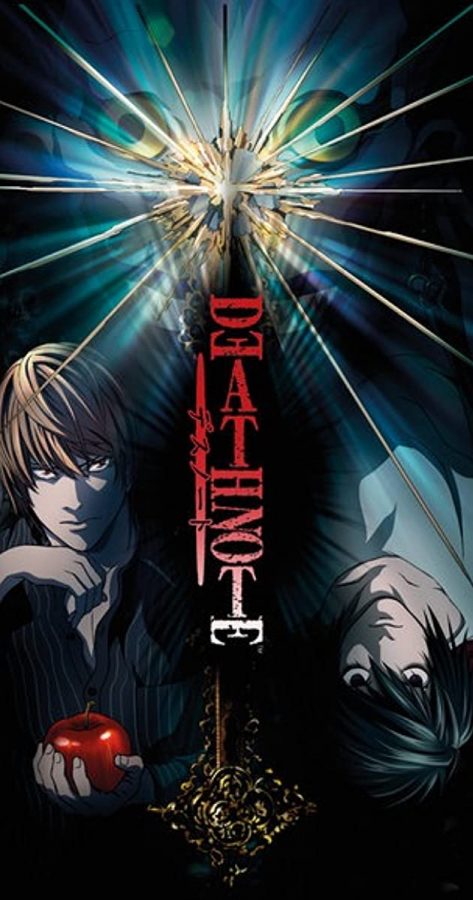Death Note is the greatest psychological thriller series ever created
For critics, the psychological series Death Note can be described as nothing less than a masterpiece. The two-season anime is mentally challenging and gripping from the beginning of the pilot episode, a quality that American television often lacks.
June 4, 2021
Authors, illustrators, and directors have the ability to create realities that consumers would never dare to imagine. The more plot twists and intricate backstories, the more respect an audience generates for a creator.
Psychological thrillers are unfortunately heavily underrated when compared to romance and action genres. This genre is not to be taken lightly and is certainly not material for a mindless watch.
For critics, the psychological series Death Note can be described as nothing less than a masterpiece. The two-season anime is mentally challenging and gripping from the beginning of the pilot episode, a quality that American television often lacks.
Death Note focuses on the often disputed question: Are humans inherently good or evil?
The storyline follows Japanese student Light Yagami’s descent from innocence to darkness upon being presented with the opportunity to be a “grim reaper.” With this power, Light decides to rid the world of all people he deems to be evil.
By simply writing down a victim’s first and last name in his “Death Note,” Light is able to kill any unsuspecting person.
Light’s quick work of criminals does not go unnoticed, and soon he is given the name Kira, which means “killer” in Japanese.
The only catch is that Light must know what his victims look like, so as to not make a mistake based on someone’s name. So Light is only able to kill a person if he knows what they look like as well as their full name.
Light’s plan starts out as genuine, as he wants to rid the world of people convicted of murder and other major crimes. But what Light fails to realize in the early stages of his master plan is that he himself is becoming a murderer.
Almost immediately, Light is caught in a psychological battle between himself and a notorious mystery investigator known as “L.” Unlike the rest of the task force assigned to the Kira case, L quickly narrows down on Light as his main suspect.
One of the reasons Death Note is respected for its genius writing is because the lines between protagonist and antagonist are conflictingly blurred.
To many, Light is quite obviously in the wrong as he becomes a hypocrite in serving his cause of eradicating “evil people.” But his genius and way of thinking have viewers conflicted on who they want to be triumphant in the end.
Both young men are nothing short of geniuses, which makes their battle against one another, more interesting.
L supports the textbook definition of justice. His justice is to execute the mass murderer known as Kira. On the other hand, Light’s definition of justice is that of a narcissist with a severe “god complex.”
In other words, Light believes that he is the face of justice, and in getting rid of all the “evil” people he will be making the world a better place — a place in which he rules and dictates who lives and who dies.
Constant counterattacks take place between the two enemies, all while Light is maintaining his appearance as the scholar son of the police chief.
Light’s transformation from a boy with warped intentions to a man who considers himself to be “the god of the new world” truly magnifies the beautiful plot and character progression that Death Note has to offer.
As a work of art, Death Note deserves more recognition. The series was acknowledged in 2017 by Netflix, only to be downplayed in a thoroughly disappointing movie adaptation that appeals to the monotony of American television.
The movie re-creation is an insult to the genius behind the original Death Note manga and anime.




dad • Jun 5, 2021 at 1:42 pm
Great job. Well written!